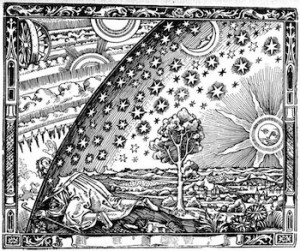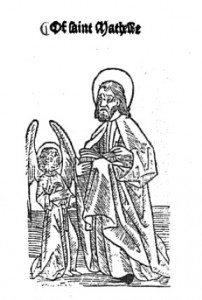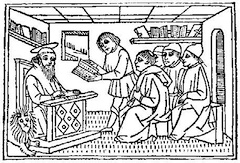Thoughts on Today’s Lessons for Sunday, Sept. 30, 2012.
First Reading: Numbers 11:4-6, 10-16, 24-29
Sometimes the story of the Israelites wandering with Moses in the desert seems like an ancient reality show. Freed from slavery in Egypt by God’s mighty hand, they complain because they miss the good food they used to enjoy. This gets an angry response from God that prompts Moses to bark back. Later, some of Moses’ lieutenants are angry, too, because they see others horning in on their turf. Perhaps the lesson here is simply, “Can’t we all get along?”
 Psalm 19:7-14
Psalm 19:7-14
Today’s psalm urges us to pray, and tells us why we should. God’s commandments are good, and to follow them does us good. It ends with a familiar exhortation that preachers often offer at the beginning of a sermon, and that we might all do well to ponder when we begin to pray: “Let the words of my mouth and the meditation of my heart be acceptable to you, O Lord, my rock and my redeemer.”
Second Reading: James 5:13-20
James, too, exalts the power of prayer. Pray if we are suffering, he advises us, and pray when we are happy, too. Pray when we’re sick, and ask the church to join us in prayer. Pray for healing for our own sins, and pray for each other in community so we might all be healed, our souls saved from death and our sins forgiven. That’s a compelling argument for prayer.
Gospel: Mark 9:38-50
In some ways Mark’s gospel echoes the first lesson: The apostles are angry that others are casting out devils in Jesus’ name. They tell him to make them stop. He encourages them instead to be glad that others are speaking in his name. Then he offers a series of scary warnings: “If your hand causes you to stumble, cut it off … And if your eye causes you to stumble, tear it out.” This is not literal advice, fortunately. Jesus is teaching through an old rabbinic tradition of comparing everyday actions to their most extreme alternatives.


 I hate you! Angry words can spill out of us suddenly, before we have time to think about them. And then how we wish we could take back the hurtful things we said! James reminds us in a series of colorful metaphors that words have power. Echoing the Isaiah reading, he warns us that teachers bear a heavy responsibility to use words wisely. It’s up to us to use them well.
I hate you! Angry words can spill out of us suddenly, before we have time to think about them. And then how we wish we could take back the hurtful things we said! James reminds us in a series of colorful metaphors that words have power. Echoing the Isaiah reading, he warns us that teachers bear a heavy responsibility to use words wisely. It’s up to us to use them well.